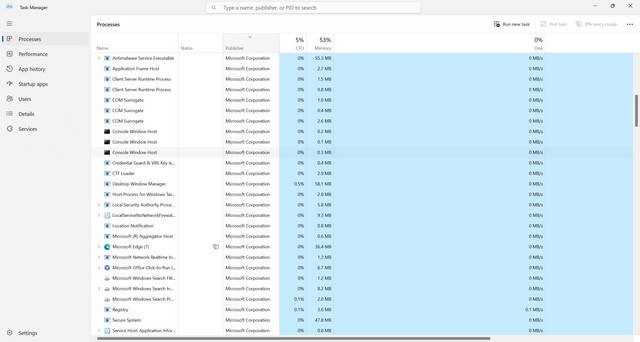When you open the Task Manager on your Windows computer, you may notice a process called “Service Host: Offline Files” running in the background. This process, also known as “CscService.exe,” is a part of the Windows operating system and serves an important purpose. In this article, we will explore why the Service Host: Offline Files process is running in Task Manager and what it does.

Understanding Offline Files
Offline Files is a feature in Windows that allows you to access files and folders stored on a network server even when you are not connected to the network. It creates a local cache of the network files on your computer, allowing you to work with them offline. When you reconnect to the network, any changes you made to the offline files will be synchronized with the server.
The Service Host: Offline Files process is responsible for managing the synchronization of offline files. It ensures that any changes made to the offline files are correctly synchronized with the network server when you reconnect.
Why Is the Service Host: Offline Files Process Running?
There are several reasons why the Service Host: Offline Files process may be running on your computer:
- Offline Files Enabled: If you have enabled the Offline Files feature on your computer, the Service Host: Offline Files process will run in the background to manage the synchronization of offline files.
- Network Folder Access: If you frequently access files and folders stored on a network server, Windows may automatically enable Offline Files to improve your experience. In this case, the Service Host: Offline Files process will run to handle the synchronization.
- Group Policy Setting: In some cases, the Service Host: Offline Files process may be running due to a Group Policy setting configured by your system administrator. This setting ensures that offline files are available to users even when they are not connected to the network.
Is the Service Host: Offline Files Process a Security Threat?
The Service Host: Offline Files process is a legitimate part of the Windows operating system and is not a security threat on its own. However, like any other process running on your computer, it is essential to ensure that it is not being exploited by malware or viruses.
If you suspect that the Service Host: Offline Files process is behaving suspiciously or causing performance issues, it is recommended to scan your computer for malware using a reliable antivirus software. Malwarebytes Free is a popular choice for detecting and removing malware.
Managing the Service Host: Offline Files Process
If you want to manage the Service Host: Offline Files process on your computer, you can do so through the Offline Files settings in Windows:
- Open the Control Panel on your computer.
- Click on “Sync Center” or “Offline Files,” depending on your version of Windows.
- From here, you can enable or disable Offline Files, configure synchronization settings, and manage the files and folders that are available offline.
By adjusting these settings, you can control how the Service Host: Offline Files process operates on your computer.
Conclusion
The Service Host: Offline Files process running in Task Manager is a vital component of the Offline Files feature in Windows. It ensures that your offline files are synchronized correctly with the network server when you reconnect. While it is not a security threat on its own, it is essential to stay vigilant and scan your computer for malware regularly. By understanding the purpose of the Service Host: Offline Files process and managing its settings, you can make the most of the Offline Files feature and improve your productivity.


